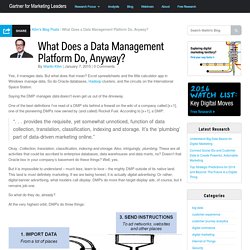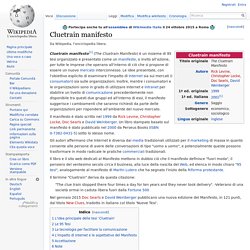

Early Prediction of Movie Box Office Success Based on Wikipedia Activity Big Data. Abstract Use of socially generated “big data” to access information about collective states of the minds in human societies has become a new paradigm in the emerging field of computational social science.

A natural application of this would be the prediction of the society's reaction to a new product in the sense of popularity and adoption rate. However, bridging the gap between “real time monitoring” and “early predicting” remains a big challenge. Here we report on an endeavor to build a minimalistic predictive model for the financial success of movies based on collective activity data of online users. We show that the popularity of a movie can be predicted much before its release by measuring and analyzing the activity level of editors and viewers of the corresponding entry to the movie in Wikipedia, the well-known online encyclopedia. Citation: Mestyán M, Yasseri T, Kertész J (2013) Early Prediction of Movie Box Office Success Based on Wikipedia Activity Big Data. Introduction [23]. .
Piattaforma di gestione dati, DMP. Advertising & Media Marketing, IT & Security Solutions. IgnitionOne - Marketing Technology Simplified. Data Capture Create data elements that capture nuanced information about a user to refine audience targeting.

Captured data can be used for targeting, setting, or updating attributes or logged for analysis. Rocket Fuel provides all the tools and the infrastructure to ingest data related to search, display, video, and social across all digital platforms. Our Smart Tag extension enables customers to capture information across multiple pages, including granular page interaction data, to better inform the AI to optimize your audience targeting in real time. Audience Creation Build and manage targetable audiences through marketing-defined rules using first-and third-party data attributes.
Audience Syndication The Rocket Fuel DMP has a built-in integration with our DSP. Modeling Site Optimization Top global brands and their agencies use Rocket Fuel to improve the performance of their website by providing visitors with unique site experiences. Cross Channel Execution and Analytics DSP Syndication. What Does a Data Management Platform Do, Anyway? - Martin Kihn. Yes, it manages data.

But what does that mean? Excel spreadsheets and the little calculator app in Windows manage data. So do Oracle databases, Hadoop clusters, and the circuits on the International Space Station. Saying the DMP manages data doesn’t even get us out of the driveway. One of the best definitions I’ve read of a DMP sits behind a firewall on the wiki of a company called [x+1], one of the pioneering DMPs now owned by (and called) Rocket Fuel. . “. . . provides the requisite, yet somewhat unnoticed, function of data collection, translation, classification, indexing and storage. Okay. But it is impossible to understand – much less, learn to love – the mighty DMP outside of its native land. So what do they do, already? At the very highest orbit, DMPs do three things: Let’s elaborate a bit on each of these three steps and hit pause in the middle for a beauty shot: BTW, there is another class of marketing software that plugs in precisely here, right after step (4). Solutions for Publishers - Krux Next-Gen DMP.
As a publisher, you're likely experiencing more and more requests for specific and precise audience data from advertisers.

You need a software solution that collects, analyzes and applies data — from multiple sources — for more effective commerce, content and advertising experiences. Krux next-generation Data Management Platform (Krux DMP) pushes beyond the limits of old-fashioned, cookie-based measurement. Now you, along with more than 100 of the world’s leading publishers, can also: Protect your audience data. Collect and retrieve data from multiple sources. Krux offers a faster, smarter and safer way to activate audience data. Activate your audience's potential with Krux. Elements of Statistical Learning: data mining, inference, and prediction. 2nd Edition. Cluetrain manifesto. Da Wikipedia, l'enciclopedia libera.

Il manifesto è stato scritto nel 1999 da Rick Levine, Christopher Locke, Doc Searls e David Weinberger. Un libro stampato basato sul manifesto è stato pubblicato nel 2000 da Perseus Books (ISBN 0-7382-0431-5) sotto lo stesso nome. Gli autori affermano che Internet è diversa dai media tradizionali utilizzati per il marketing di massa in quanto consente alle persone di avere delle conversazioni di tipo "uomo a uomo", e potenzialmente queste possono trasformare in modo radicale le pratiche commerciali tradizionali.
Il libro e il sito web dedicati al Manifesto mettono in dubbio ciò che il manifesto definisce "fuori moda", il pensiero del ventesimo secolo circa il business, alla luce della nascita del Web, ed elenca in modo chiaro "95 tesi", analogamente al manifesto di Martin Lutero che ha segnato l'inizio della Riforma protestante. Il termine "Cluetrain" deriva da questa citazione: L'idea principale delle tesi 'Cluetrain'[modifica | modifica wikitesto] "... Apply Magic Sauce - Prediction API - John Green. MyMediaLite - Recherche Google. E. G. Altmann's list of publications.